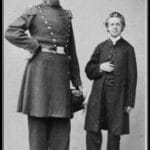Benjamin Franklin’s adage about “death and taxes” is perhaps one of the most widely recognized quotes in history. But to focus solely on this cynical-sounding phrase is to miss the broader, more optimistic philosophy that shaped Franklin’s life. This article delves into Franklin’s true certainties—his 13 virtues—and explores how these principles can offer a roadmap for navigating the uncertainties of modern life.
Franklin’s Pursuit of Self-Improvement
Franklin wasn’t merely resigned to life’s unavoidable endpoints. He was deeply interested in maximizing the “in-between,” the dash between the birth and death dates on a tombstone. His 13 virtues were not lofty ideals, but rather practical tools for self-improvement, a personal operating system he continually updated and refined. He saw life not as a passive acceptance of “death and taxes,” but an active pursuit of becoming a better version of himself. This suggests that Franklin’s true certainty wasn’t about endings, but about the potential for growth and progress within each of us.
Decoding the 13 Virtues: A Modern Interpretation
Franklin’s virtues offer a practical framework for living a more fulfilling life. They’re not a rigid set of rules, but rather guiding principles to adapt and apply to contemporary challenges:
| Virtue | Franklin’s Precept | Modern Application |
|---|---|---|
| Temperance | Eat not to dullness; drink not to elevation. | Mindful eating and drinking; avoiding excess. |
| Silence | Speak not but what may benefit others or yourself; avoid trifling conversation. | Active listening; choosing words carefully; valuing silence. |
| Order | Let all your things have their places; let each part of your business have its time. | Organization; time management; prioritizing tasks. |
| Resolution | Resolve to perform what you ought; perform without fail what you resolve. | Goal setting; follow-through; commitment to personal growth. |
| Frugality | Make no expense but to do good to others or yourself; i.e., waste nothing. | Conscious spending; valuing experiences over possessions; avoiding impulse buys. |
| Industry | Lose no time; be always employ’d in something useful; cut off all unnecessary actions. | Productivity; focus; minimizing distractions. |
| Sincerity | Use no hurtful deceit; think innocently and justly, and, if you speak, speak accordingly. | Honesty; integrity; authenticity. |
| Justice | Wrong none by doing injuries, or omitting the benefits that are your duty. | Fairness; accountability; taking responsibility for actions. |
| Moderation | Avoid extremes; forbear resenting injuries so much as you think they deserve. | Balance; emotional regulation; managing reactions. |
| Cleanliness | Tolerate no uncleanliness in body, cloaths, or habitation. | Personal hygiene; tidiness; creating a pleasant environment. |
| Tranquility | Be not disturbed at trifles, or at accidents common or unavoidable. | Stress management; resilience; cultivating inner peace. |
| Chastity | Rarely use venery but for health or offspring, never to dullness, weakness, or the injury of your own or another’s peace or reputation. | Responsible sexual behavior; respecting boundaries; healthy relationships. |
| Humility | Imitate Jesus and Socrates. | Humility; lifelong learning; openness to new ideas. |
Poor Richard’s Almanack: Wisdom in Bite-Sized Pieces
Franklin’s virtues weren’t confined to his personal life; they permeated his work, most notably Poor Richard’s Almanack. Proverbs like “Early to bed, early to rise, makes a man healthy, wealthy, and wise” weren’t just catchy phrases, but reflections of his core principles, particularly industry. These sayings served as constant reminders of the virtues he strived to embody.
The Enduring Relevance of Franklin’s Virtues
Why these specific 13 virtues? Were they arbitrary choices, or products of Franklin’s time, experiences, and understanding of human nature? Comparing the historical context of “frugality” in 18th-century America to its meaning in our consumer-driven society offers a compelling lens. Similarly, “tranquility” takes on new meaning in our hyper-connected world. Exploring the rationale behind each virtue reveals their adaptability and enduring power, transforming them from historical relics into practical tools for modern living. Delve deeper into our exploration of Napoleon’s story and the compelling life of Moira Kinross for more insights into resilience and adaptability throughout history.
Reframing “Death and Taxes”: A Call to Action
The “death and taxes” quote, often interpreted as pessimistic, can be seen as a pragmatic call to action. Franklin, recognizing life’s inevitable bookends, emphasized writing a compelling narrative for the pages in between. His virtues weren’t about passive acceptance, but active engagement in crafting a meaningful life. This suggests a practical optimism: by focusing on continuous self-improvement, we can shape a life worth living, one virtue at a time.
Unpacking the “Death and Taxes” Legacy
The phrase “nothing is certain but death and taxes” has resonated for centuries. It’s a stark reminder of our mortality and societal obligations. But while often attributed to Benjamin Franklin, the saying predates him, appearing in Christopher Bullock’s 1716 play The Cobbler of Preston. Franklin, however, cemented its place in American culture through his 1789 letter to Jean-Baptiste Le Roy. It’s ironic that Franklin, known for his myriad accomplishments, is also remembered for a phrase he didn’t originate. Perhaps the quote’s longevity speaks to a universal human desire to grapple with life’s unavoidable realities.
The modern interpretation of “three certainties” adds another layer. Concepts like change, suffering, or even uncertainty itself are sometimes proposed as the third certainty. This may be an attempt to find deeper meaning or soften the blow of the original two. It’s a testament to the human need to find meaning and create a framework for understanding existence.
The Illusion of Certainty
Modern advancements in life extension research, fueled by figures like Larry Ellison, challenge the absolute certainty of death. These endeavors, while not promising immortality, raise questions about the traditional timeframe of human life. Similarly, complex tax laws allow some to minimize or avoid taxes, challenging the assumed universality of this “certainty.” This doesn’t negate the reality of death and taxes for most people, but rather highlights the evolving nature of these concepts.
Perhaps focusing solely on death and taxes, two undeniably negative aspects of existence, obscures other, more positive certainties. Human connection, for example, is a fundamental human need. Science supports the importance of relationships and social bonds for well-being. Change, too, is a constant. Embracing this ever-present force can be a source of renewal and opportunity. Finally, the human search for meaning and purpose offers a different kind of certainty—a philosophical or spiritual anchor. These certainties, while less tangible than death and taxes, offer a more empowering perspective on the human experience.
Franklin, while acknowledging death and taxes, chose to focus on what he could control: his character. His 13 virtues became his personal constants, offering a framework for self-improvement amidst life’s uncertainties. This suggests a shift in focus—from fearing the unavoidable to cultivating what we can influence: ourselves. This is an empowering certainty to strive towards. It’s not about eliminating all uncertainty, but rather choosing where we invest our energy and attention.












